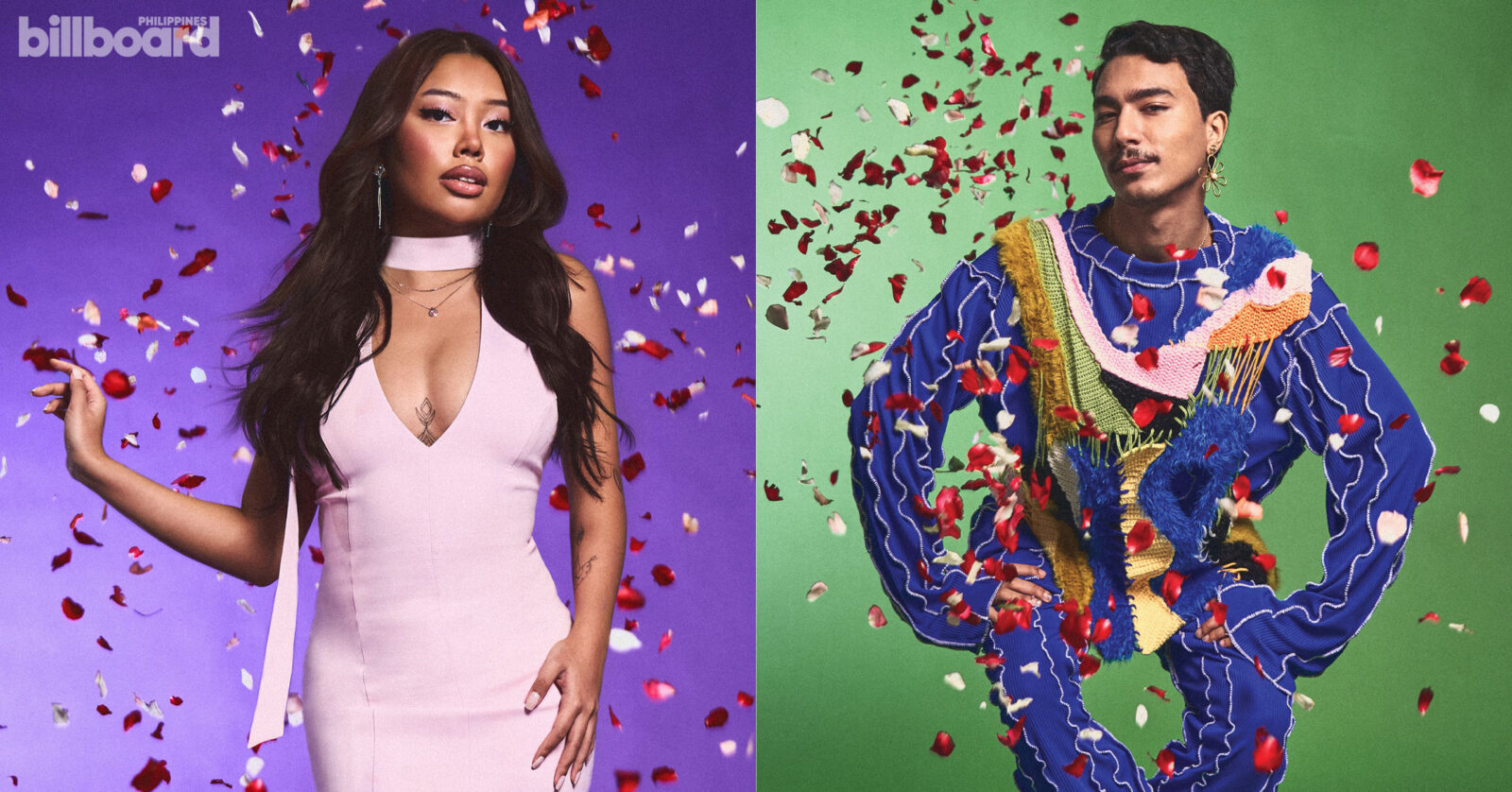Music is always better when an artist is authentically themselves — just ask Denise Julia and Jason Dhakal.
Whether it’s writing stories that truly speak of who they are, or making music that reflects what phase of life they’re in, the two rising R&B stars have been on a mission to be unapologetically themselves. From Jason proudly claiming his place in the music industry and pushing a new sound forward, to Denise sparking conversations and defying expectations, the pair has always been about driving change and taking up space.
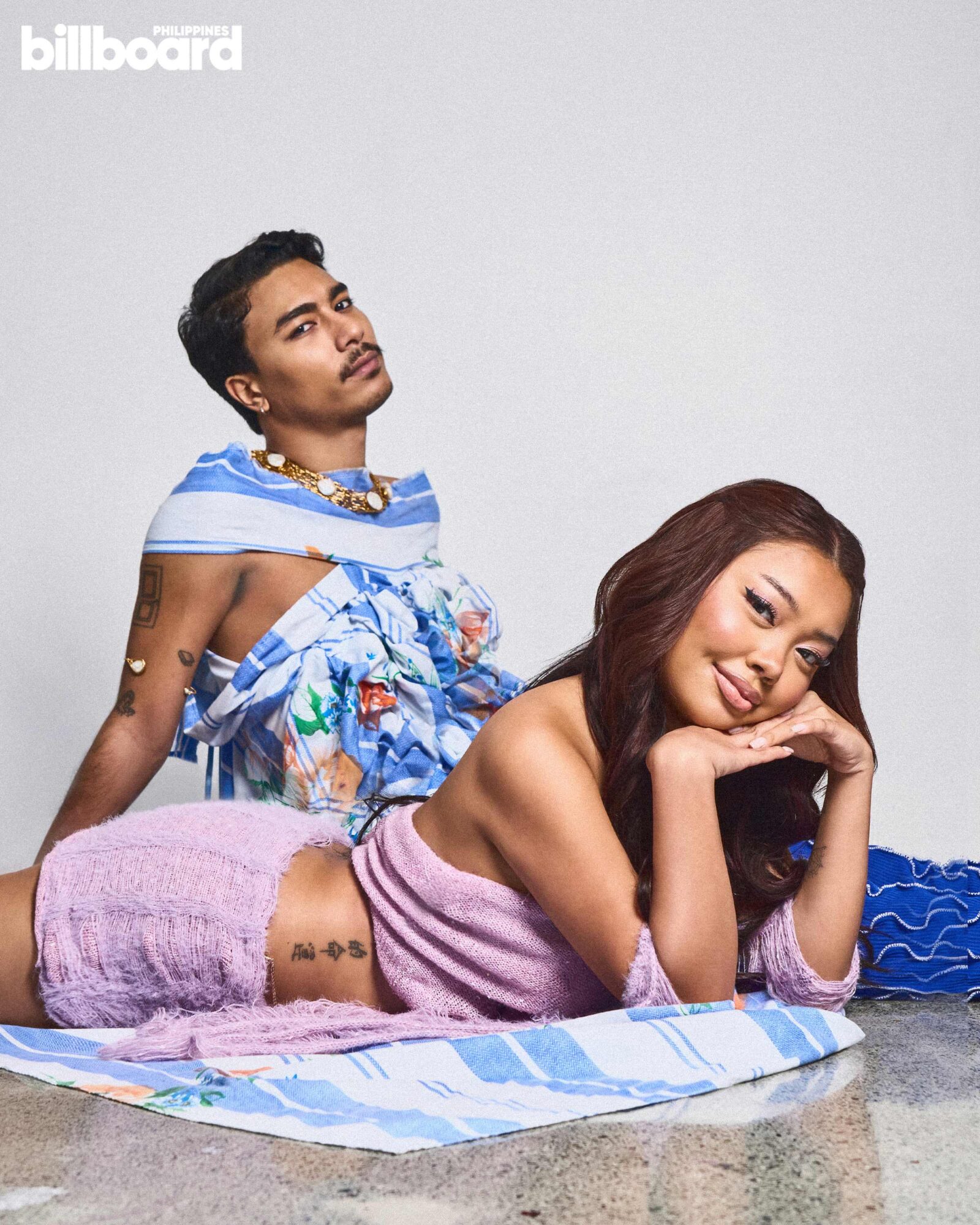
Photographed by Kieran Punay of KLIQ INC.
For this special Pride feature, we give the floor to Denise Julia and Jason Dhakal, who have colored the music scene with their mellow R&B tunes and relatable lyrics that paint the picture of love and intimacy in all its forms. The stars sit down to talk about their journeys in music, challenging expectations, and how they’re disrupting the scene.
Denise: Your music has always tap into the very intimate aspects of your life, including your relationships. What is it like sharing that with the world?
Jason: Very vulnerable. I feel like you know, especially when you’re just starting out music and you’re like, “Wow, I’m like telling my entire [story] to everyone.” And, especially when you let your friends listen to it, they’ll start guessing who it’s about. It’s very vulnerable and very scary, but I’ve learned for it to be like my best friend, really. There’s no one else that I can tell my secrets to like music because I’m sure that b*tch, she’s not going to tell. That’s why I really love writing and processing my life through music.
Denise: You talk a lot about intimate parts of your life through your songs. So, how is it like opening up that space for other people to go into?
Jason: For me, it feels very empowering. Honestly, like, I love being able to just tell — that’s also how I process things. I really have to write things to be able to move on and process. Most of the things that I’m writing about, I’m like, “I need to get over it,” and so, I just have to write it. Then once I write it all, [it’s like,] “You’re done, never talking to you. You’re out of my mind. Goodbye.”
Denise: Same thing, it’s to say goodbye.
Jason: Which means if I haven’t written a song, it means I’m still over it. (Laughs)
Music is obviously important to who you are today, but when you were growing up, what parts did music play in your life, especially when you were still discovering who you were?
Denise: So before. I was like a loner, I didn’t go outside. I would just be inside. I’ll be watching MTV.
Jason: Like in the “B.A.D.” music video!
Denise: Yeah, I really just wanted to tell my story there. They would call me a lot of words before, especially in your family like, they would force me to scrub everything with that soap. But then I saw Beyoncé and all those girl groups who had brown skin. I found them so beautiful so I listened to their music more and more.
Then, growing up, I realized that I was just doing what they were doing, like what I saw as an inspiration before. When I grew up, I just wanted to be like that so that people like me, like Asians can have someone to look up to, you know.
Jason: Aww, that’s so sweet!
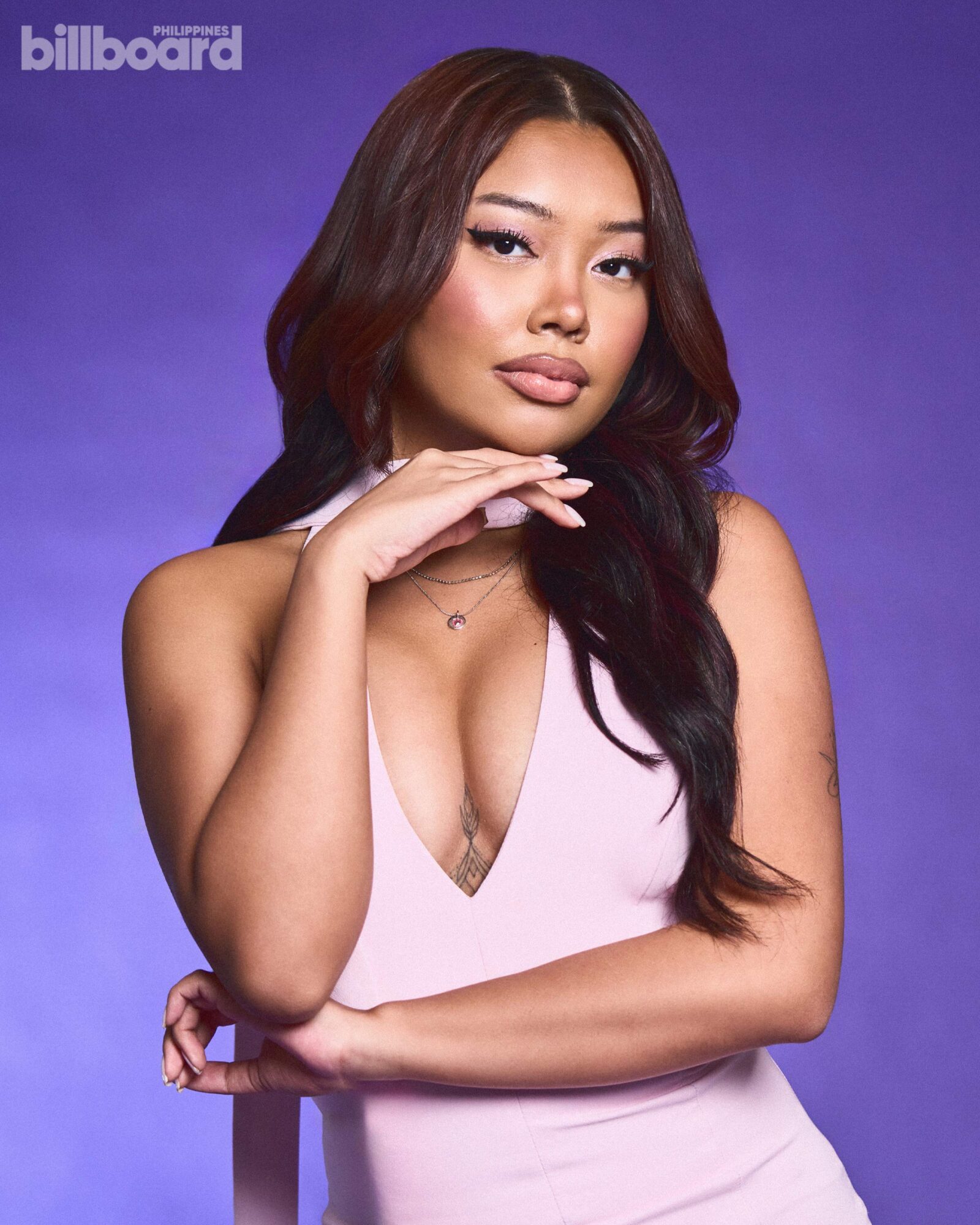
Photographed by Kieran Punay of KLIQ INC.
Denise: Thank you! How about you? Who were some artists that you looked up to growing up?
Jason: I remember one of the first ones, when I was a child, was Alicia Keys. You know that song “Karma”? “What goes around, comes around…”
Denise: Oh, yes, I know that song!
Jason: She had cornrows and she sat at the piano, and I was like, “Oh, I want to be like that.” She was so pretty maangas (confident), and when I grew up a bit more — kasi (because) when you’re a kid, you don’t really choose what to listen to, it’s just whatever you hear on the radio, what your siblings are playing, ‘di ba (right)?
So, when I was 13, I started listening to R&B, jazz. I already loved Syd from The Internet, Mariah Carey, Amy Winehouse — these are like people that really inspired me, especially Mariah Carey. One of the reasons why I really got into Mariah Carey was because I realized she would write every single word and I’m like, “Wow, you can do that.” I really love that
Denise: What made you choose the genre that you’re doing now?
Jason: I guess I really grew up in R&B and all of that. There’s not a lot of producers who really [do R&B], especially when I started, girl, there were not a lot of R&B producers and I didn’t have resources to find [a producer]. So, it was like whoever was closest to me, I just tried to make music with them first and figure out what sounds I wanted, and then just go from there.
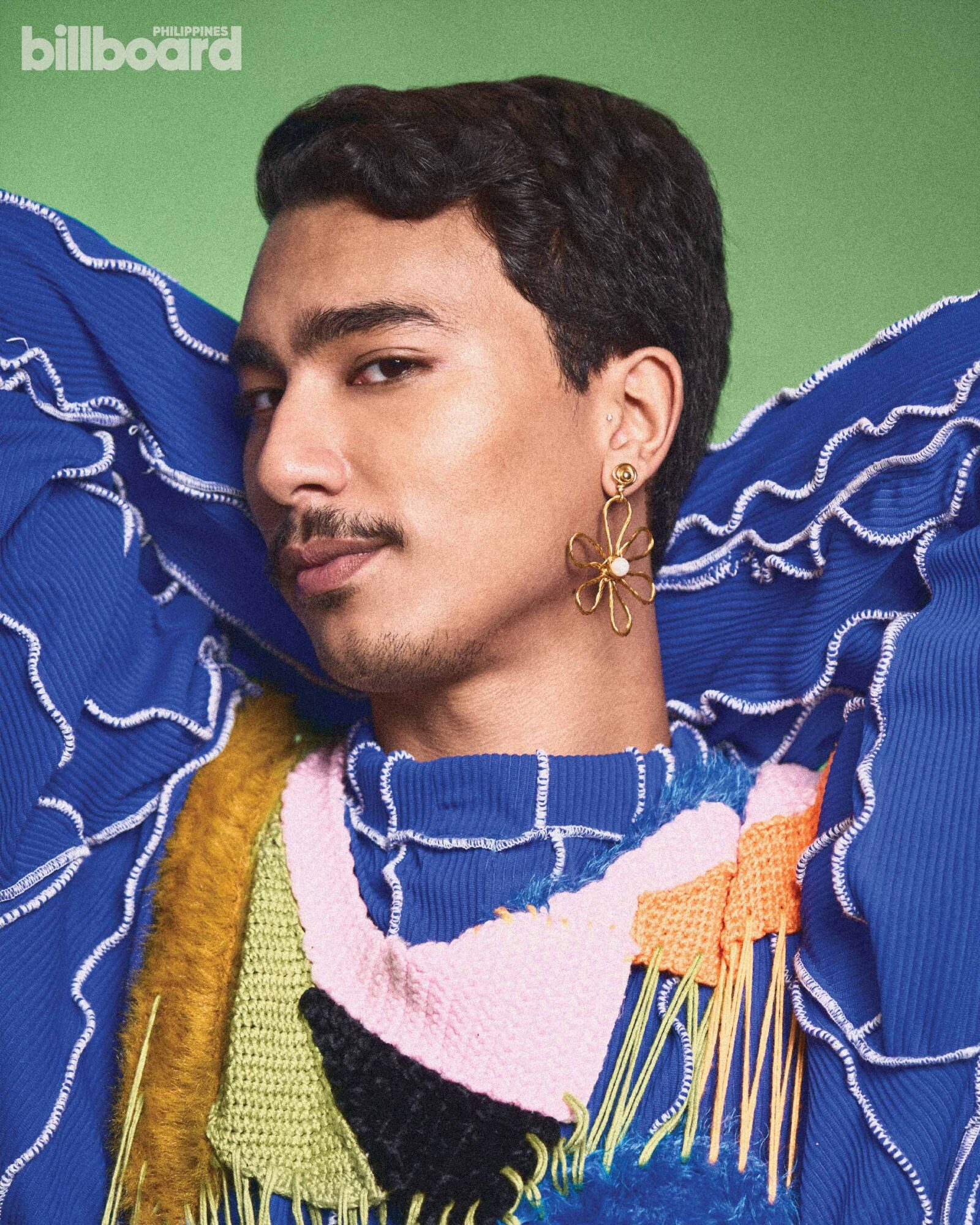
Photographed by Kieran Punay of KLIQ INC.
Jason: Do you think that there’s a need to come out, especially as artists in the public eye?
Denise: Oh, tough question. I think it’s important, but at the same time, you have to come out when you feel like coming out; there shouldn’t be any pressure. There’s already a lot with dealing with the public — what more sharing a part of your life? That’s — to me at least — very intimate and very personal, and should be private.
But [also] historically, there’s not really any like girly, girly, femme queer representation. If you’re queer, you have to be butch or like boyish to be considered a part of the community. So, I wanted to really make that a norm, [or] at least be one of the pioneers to make that a norm, so that it’s easier for future people to come out. If they dress girly and they identify as queer, it’s perfectly safe for them to come out without anyone coming at them.
Jason: So, no one’s invalidating them.
As you guys gain more popularity, do you feel the need to have to come out again and again?
Denise: I think with that, feeling like I have to do it again and again, that’s already happened to me. It’s not enough to put out a music video that had this deep meaning to me, like with my song “Sugar and Spice,” I wanted to portray women’s love as a very light and beautiful thing. It wasn’t enough, like people would really come at you. The internet’s just a really bad place…
Jason: It really is.
Denise: They would really throw words at you. I just wanted to focus on the positive side because at the same time, even though people are coming at you, there are also people that feel more safe [because of it]. They feel like they have someone that they can look up to, regardless of all that so that’s what I focus on.
Jason: I feel like I never really had to come out again. I just knew that when I was writing music, I was already queer so it was always just that. But then, when it comes to pride, I do want to be a part of these communities and things [but] I come from the Middle East; I just didn’t have that community.
I got outed when I was 13 and after that, I just spent my entire life thinking something’s wrong with me. And then I watched Drag Race and I’m like, “Oh, you can be queer and popular and famous.” After that, I just pushed to be who I am — queer — so now I don’t really feel like coming out or anything like that because I don’t give a f*ck.
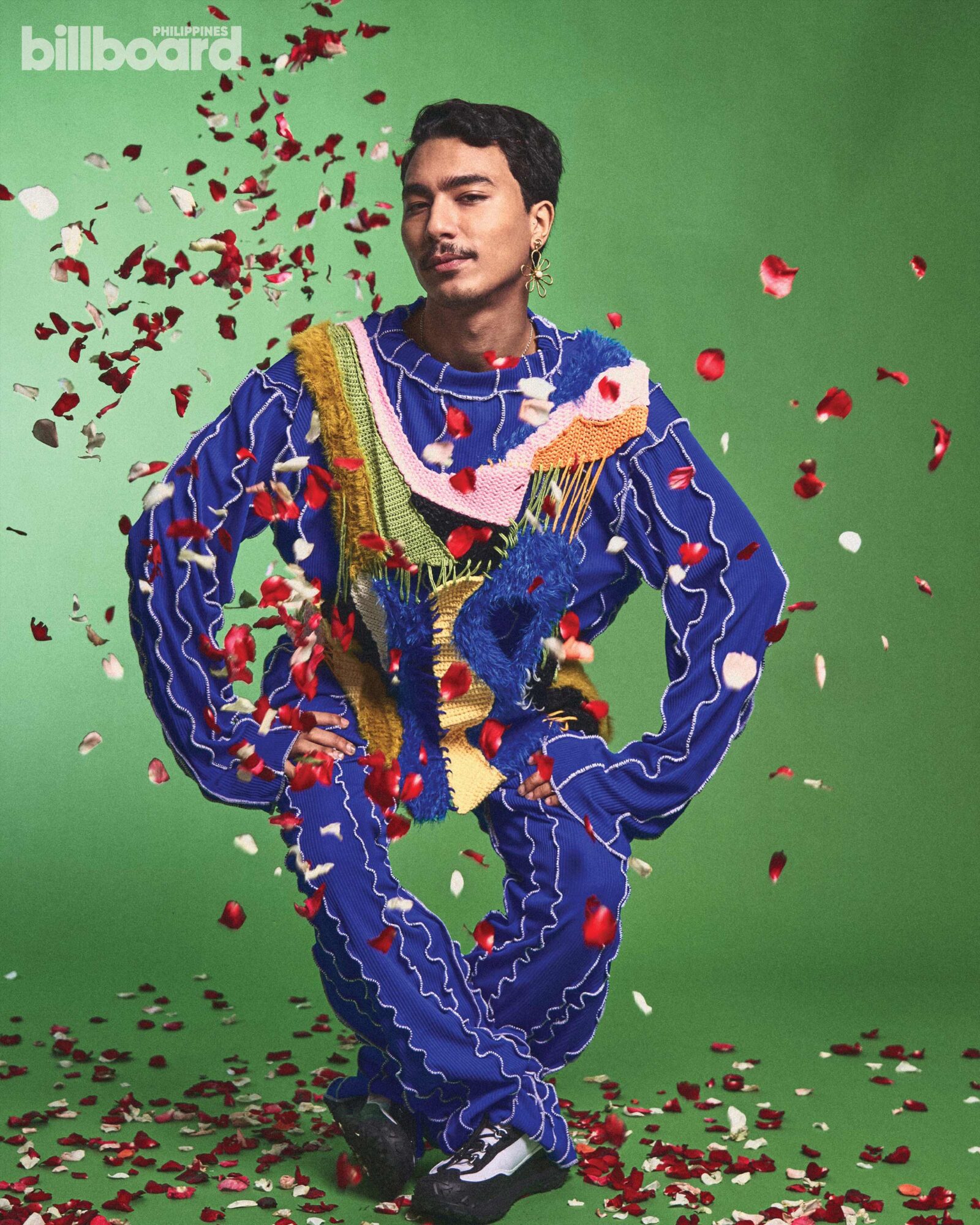
Photographed by Kieran Punay of KLIQ INC.
But for you, there’s been a lot of discourse surrounding your SOGIE online and you’ve really had to defend who you are. What has going through that been like for you?
Denise: For me, the fact that people are talking about it, I call that impact. If they’re not talking about it, then it means I’m not doing anything. At first, of course, it’s going to be hard because although your intentions are really pure and you want to do it for the good of everyone, people will always have something to say — but then at least, they’re talking.
Jason: I feel like sometimes people don’t look at you as a human being, or that they’re talking in your comment section for themselves like it’s [not about you]. That’s like, the most annoying part of it.
Denise: Yeah. For me, it was really just a matter of “Am I really making an influence or an impact?” When I realized that people are talking — it’s a very polarizing discussion, right? You see people taking sides. That’s when I knew that it was something’s happening, that’s happening online. I don’t really check anymore.
My name trended. People were defending my statements and honestly, that’s a good thing because then we really get to talk about it. Let’s hear what people have to say.
Jason: You gained a lot of popularity from TikTok and it’s made you more accessible as a public figure. Do you think that had anything to do with all of it?
Denise: I think it’s very much a gift that I’m able to connect more with my fans, but at the same time, there’s not really any boundary. They feel like they can talk to you and about you. Honestly, right now, I’m trying to look at the positive side of it. I get to share as much as I can, I get to involve them with the processes and with sharing my emotions, sharing what I’m going through. At the end of the day, it’s all laughs and love; that’s what I’d rather focus on. It’s all about music, good music and they’re gonna listen to it, so, I’m good.
Jason: How has all the discourse affected your music and how you carry yourself as an artist?
Denise: I feel like with everything that happened, it only fueled me to write more stories about what I’m going through. I feel like people want you to cower and stop; the reason why they want to do that is because they want you to stop you from what you’re good at doing. But it’s kind of pushed me more because there’s a lot more to say now. There’s a lot of emotions that I went through and I want to put that into my art, my craft and for them to hear it in a beautiful way. Instead of fighting over each other, I’d rather just tell my story through my craft.
I’m just excited for them to hear it. I don’t care if they’re hate hearing — you heard it at the very least.
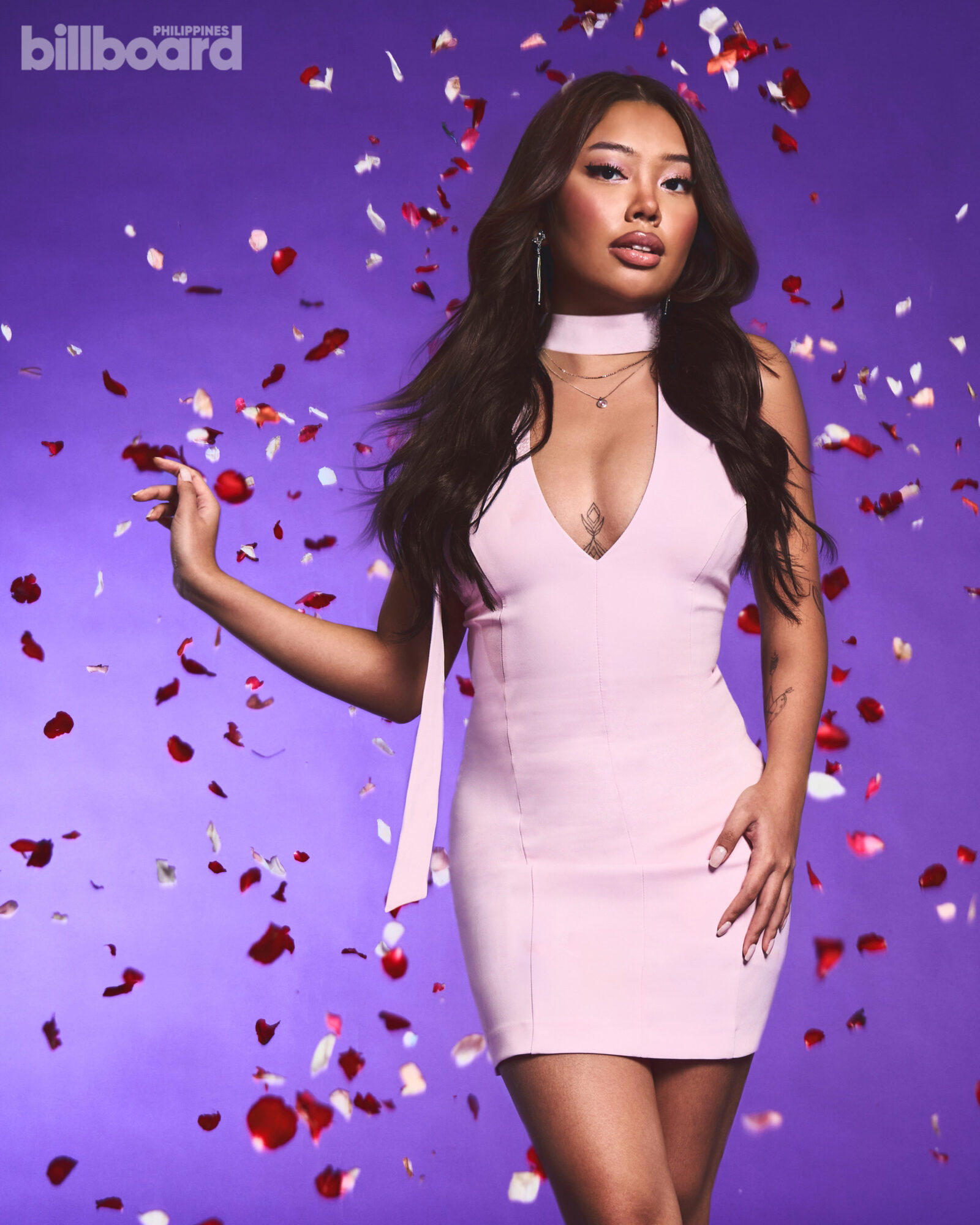
Photographed by Kieran Punay of KLIQ INC.
What are some steps that you’ve taken to get to where you are right now? What advice would you give to people who also want to be comfortable with who they are?
Jason: Advice I’d give people who want to be comfortable with who they are? I don’t know… like for me, there’s a lot of steps I took to get in this f*cking way — like me when I was a teenager and now [are] two different f*cking people.
I guess, one of the steps that I really [took]… I really was so delusional when I was a kid — I would like literally tell b*tches in school, “Once I become a singer, it’s over for you b*tches.” I would be so mad, I was outed and all of these things, and of course, when you’re a teenager, you feel like you have to be more perfect and really try to [fit in]. I think you really just [have to start] believing in yourself and that’s also something you said a while ago, you really have to have a good support system. Mine was my best friend, my sister. I had people who were telling me I was normal and it was okay.
I think one of the things that really made me comfortable with myself is when I got that record deal. I’m like, “I’m a signed recording artist, what can you say?”
Denise: Was there a specific moment that triggered that switch?
Jason: Yeah, maybe when the song “Body and Soul” came out; girl, when that got a million views, I was like “Wow, people are listening to me for real.” I remember before I had a SoundCloud and I had 100 listeners and I would think it’s crazy. It really made me grateful that I’m here and I’m in this spot now.
I can’t be mad or anything, even when there’s days I don’t feel up to it because I know [others] would want this spot the second I get out of it. I’m not giving this up.
Denise: How has music helped you better understand yourself and the world?
Jason: I really like that this is my job, I get to make music and people really listen to it. But I’ve learned to detach myself from my own self, to really see what type of artist I want to be and see what music I want to make.
Denise: For you, what’s the difference between making music when you first started and now?
Jason: It was more different from before. Before I would really love making music so I would really just make music, anything I wanted to. I’m not thinking about what [people] would think or what would do well… but honestly, my music was so sh*t back then anyway, so maybe she should have listened a little bit more. (Laughs)
Denise: Headspace-wise, what era did you prefer?
Jason: Honestly, I feel like I have way more resources now so I can do anything. The music that I’m making is the closest to who I am; it’s getting closer and closer to the person I see inside inside.
How about you?
Denise: I prefer back then, actually. I just feel like it was easier because you can just write and not have other people’s voices in your head. Back then, it was just music and me, but now it’s music plus performing plus posting plus being a baddie plus being this, being that. It’s more of a responsibility, it’s more of a job. Before, it was just my heart and if I loved the song I wrote.
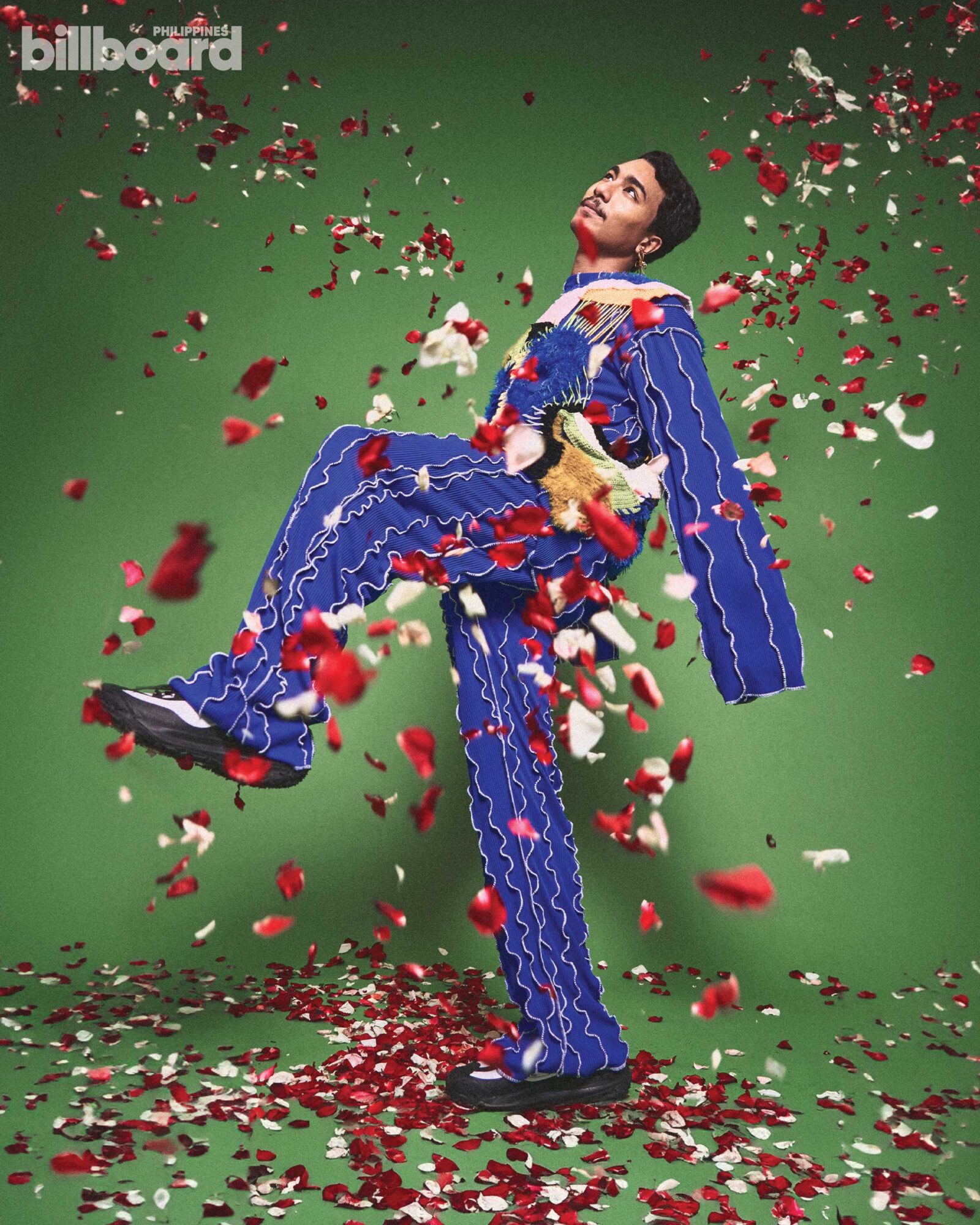
Photographed by Kieran Punay of KLIQ INC.
How has your relationship with music evolved since becoming an artist? Kasi (Because) I barely listen to songs now.
Jason: Really? Like any music?
Denise: Well, I listen but mostly the same artists that I’ve found years ago, but as far as discovering new artists, very rarely na (anymore). Before, I would really dive deep into the trenches of Spotify and would be so proud when I see someone that has barely any listeners and they have good music. I don’t really have the time to do that because I’m so focused on my own music.
Jason: That’s so true because also, I just don’t want to know what music [is trending] right now because I don’t want to get inspired or have that in my head. I’d say the way I listen to music now is so different — like, when I hear a song now, I would listen to the background and hear everything. Even when I listen to Mariah Carey now, I hear everything she’s doing and I gain even more respect for her.
For you, what role do you hope your music plays for young queer people?
Denise: Well for people in general muna (first) — like I said, if they see me onstage or on TV, I hope they can feel like they can be like that. I was from Tondo, and if they live in an area that doesn’t really have much resources or access, like I fortunately do now, I hope they can feel like they can achieve everything they want to. I also want this space to grow and evolve to really see the talent of Filipinos because we’re one of, if not the best, singers in the world.
And for queer people, I just really want them to be more… what’s English for gigil? Maybe fierce? Like when they want to do something, when they want to break a barrier, they just do it. We’ve done it already, I want it to be easier. Whatever music they want to make, whatever they want to do, they can do it without judgement.
Jason: I want young queer people to be ruthless, I want them to be disrespectful, like I want them to be like, “Why don’t we have rights? What the f*ck is going [on]?” People forget that children, young people become adults, and they’ll be the ones moving the world and running sh*t. We forget that so, I want them to like, “What’s going on?”
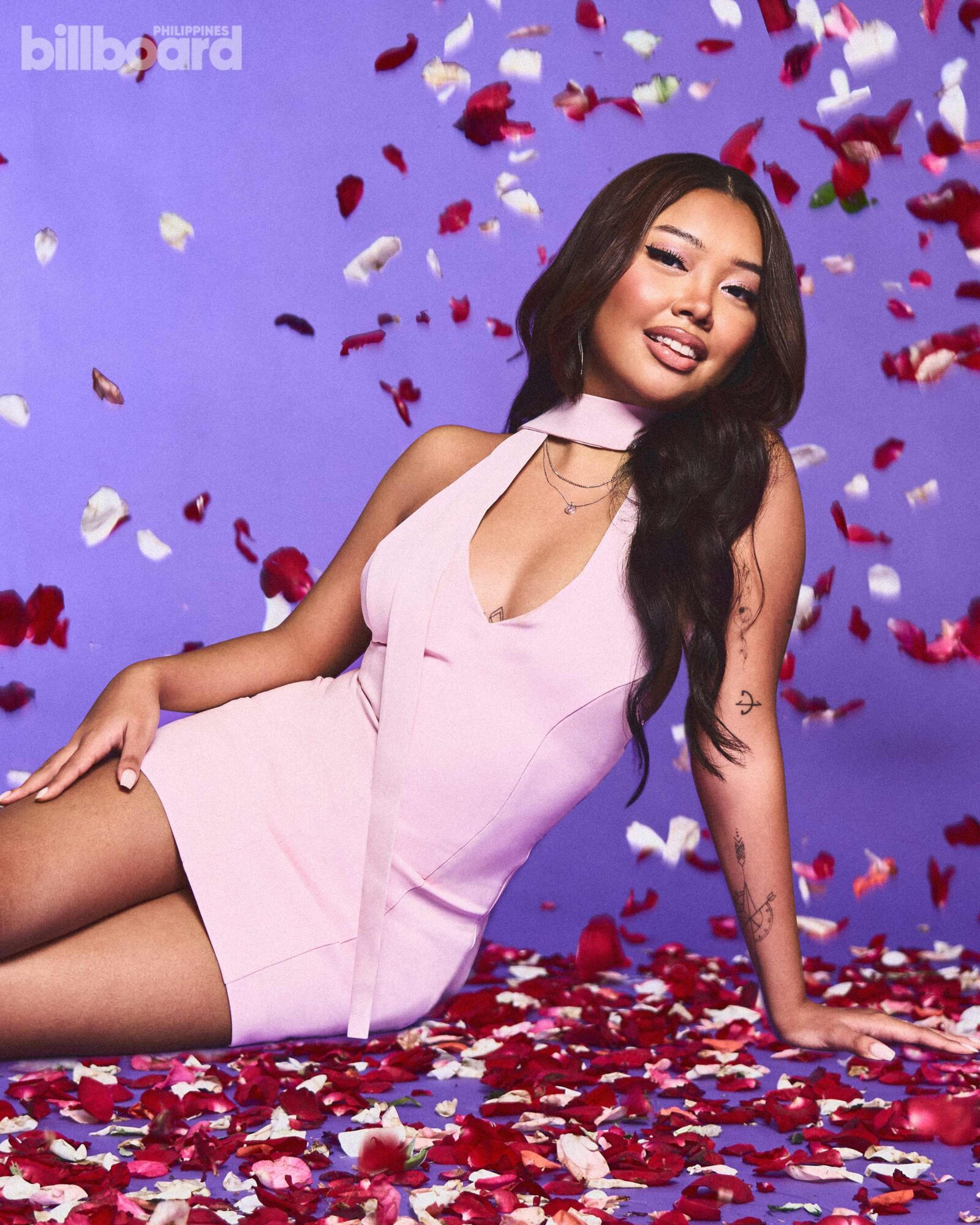
Photographed by Kieran Punay of KLIQ INC.
Denise: Compared to when you started, do you feel like the music scene is more open to queer artists?
Jason: I’m glad that there’s more queer artists, I mean there’s Paul Pablo, there’s Dom Guyot. There’s like so many artists now that get to make music because [it’s] more accessible now. So, I’m really grateful for that, but it’s also still hard as f*ck because no one really wants to take us seriously.
What do you love most about being where you are in life right now?
Denise: I would say before [there was a] hunger to prove to people who I am, because I keep writing about the same stuff — like about boys — so that’s all [people] knew me as. I felt like that’s what people will relate to, and I felt like I had to follow that pattern of writing about the same stuff, when I really wanted to write about what I really see as love.
But I’m in a really good space right now. It’s more fun and I feel like it’s just more easy [that] when I want to write something, I can be more honest and authentic about it. That’s where I’m at right now.
Jason: I think the best thing is the freedom that I have to do anything that I want. I can do anything that I could like set my mind to, and that’s my most favorite thing in the world. I remember when I was like 16 or 15, my dream was to have a space where I could just be by myself, like actually have things that I chose — like my own sofa and couch and things. I’m at that part of my life, like I’m limitless. You cannot stop me and if you try to, you’re just going to get pissed off. You don’t want to see me? You’re going to have to, b*tch.
Photography by Kieran Punay of KLIQ INC. Creative Direction by Nicole Almero. Shoot Coordination by Mika Cruz. Jason Dhakal styled by Clarisse Furio, makeup by Joey Mercado. Denise Julia styled by Bianca Pesos: Lavender Knitwear designed by Janelle Hung & Bianca Pesos

